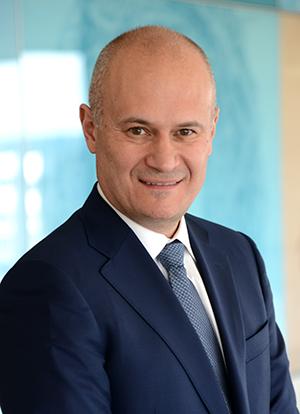Article
Bariatric Surgery Could Reverse Low Testosterone Levels in Adolescent Males
Author(s):
Data from the Teen-LABS study demonstrate undergoing bariatric surgery was associated with an increase in testosterone levels among adolescent males with subnormal serum testosterone levels.
Thomas Inge, MD, PhD

Undergoing bariatric surgery could reverse low testosterone levels in male teens with obesity, according to the results of a new study.
An analysis of data from the ongoing Teen-Longitudinal Assessment of Bariatric Surgery (Teen-LABS) study, results provide valuable insight into the reversal of subnormal testosterone levels following bariatric surgery in this population, with 80% of patients achieving normal free testosterone levels 2 years after surgery and 67% maintain these levels 5 years after surgery.
“It is remarkable that testosterone levels more than doubled and in fact normalized in most adolescent boys who underwent bariatric surgery, and this was maintained up to five years,” said study investigator Thomas Inge, MD, PhD, Surgeon-in-Chief and Director of Adolescent Bariatric Surgery Program at Ann & Robert H. Lurie Children’s Hospital of Chicago, and Professor of Surgery and Pediatrics at Northwestern University Feinberg School of Medicine, in a statement. “This testosterone response was greater than that expected in adults undergoing these same operations and adds to the growing list of benefits of using bariatric surgery in teenagers with severe obesity.”
The popularity of bariatric surgery in the US has grown in tandem with rising rates of obesity. Although bariatric surgery has become a focus of ongoing research, questions remain surrounding the long-term effects on various outcomes, including sex hormone levels in younger patients who undergo a bariatric procedure. The first large study to systematically assess outcomes of bariatric surgery in adolescents with severe obesity in the US, the NIH-funded Teen-LABS study provided investigators with data related to a cohort of 242 adolescents who underwent bariatric surgery.
Of the 242 included in Teen-LABS, 59 were male. As part of an ancillary study, serum samples from male participants were used to measure testosterone, estradiol, sex hormone-binding globulin (SHBG) and gonadotropins, including luteinizing hormone and follicle-stimulating hormone. Serum samples were collected from study participants at baseline and again at 6, 12, 24-, 36-, 48-, and 60-months following surgery.
A total of 34 male participants with baseline serum samples were included in the current analyses. Investigators pointed out follow-up samples were available for the 6-, 12-, 24-, 36,48-, and 60-month follow-ups in 29, 28, 24, 21, 15, and 13 participants, respectively. This cohort had a mean age at surgery of 17.4±1.5 years, a mean bodyweight of 163±15 kg, and 44% underwent Roux-en-Y gastric bypass while 53% underwent sleeve gastrectomy.
Initial analysis suggested participants lost one-third of their body weight following bariatric surgery, with maximum weight loss observed at 24 months for most study participants. At 5 years, the mean percent BMI change from baseline was -28.7% (95% CI, -33.0 to -24.4).
Results demonstrated free testosterone levels increased from 0.17 nmol/L at baseline to 0.34 (95% CI, 0.30-0.38) at 2 years and 0.27 nmol/L (95% CI, 0.23-0.32) at 5 years (P <.001 for both). Total testosterone levels increased from 6.7 nmol/L (95% CI, 4.7-8.8) at baseline to 17.6 nmol/L (95% CI, 15.3-19.9) at 2 years and 13.8 nmol/L (95% CI, 11.0-16.5) (P <.001).
Investigators pointed out 73% of patients had subnormal free tester one levels prior to undergoing surgery, but only 20% and 33% had subnormal testosterone levels after 2 and 5 years, respectively. Investigators also noted weight regain during this time period was associated with reductions in free testosterone concentrations.
“The rise in testosterone levels paired with improvement in insulin sensitivity after bariatric surgery point to benefits in improving glucose metabolism, fertility, lipid metabolism, bone mineralization, and muscle mass. These changes can help decrease morbidity over the lifespan related to obesity-related complications,” added Ellen Kim, MD, pediatric endocrinologist and Medical Director of the Interdisciplinary Weight Management Program at Lurie Children’s.
This study, “High Prevalence of Subnormal Testosterone in Obese Adolescent Males: Reversal with Bariatric Surgery,” was published in the European Journal of Endocrinology.




